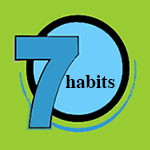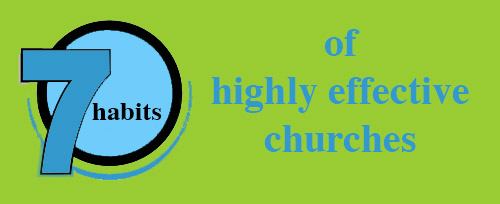Habit 4 – Quality Music
The importance of music and singing cannot be underestimated. Taizé and Hillsong are just two well-known examples that illustrate the potency of music.
Singing cultures know how unifying and invigorating group singing is. If you’ve been to a sports game where supporters sing – you will know exactly what I mean. Singing enlivens. Music raises our spirits, expresses and deepens our human experience. Music is a universal human language – if words are the language of my mind, music is the language of my soul. Plato already said, “Music gives a soul to the universe, wings to the mind, flight to the imagination and life to everything.”
People have long repeated the aphorism: You who sing pray twice.
And it has been well said that we do not sing at the liturgy, liturgy is sung. Goethe said, “Religious worship cannot do without music. It is one of the foremost means to work upon man with an effect of marvel.”
My recommendation for a liturgical model is sing together a strong song as soon as possible after the greeting. Greeting – hymn. This is one of the best way to gather community – be it a funeral, wedding, eucharist,…
Some may be interested that “religious experience/insight” often involves both sides of the brain together – and singing involves both sides of the brain. This way that singing works is part of why remembering through song is so effective.
λαλοῦντες ἑαυτοῖς ἐν ψαλμοῖς καὶ ὕμνοις καὶ ᾠδαῖς πνευματικαῖς ᾄδοντες καὶ ψάλλοντες τῇ καρδίᾳ ὑμῶν τῷ κυρίῳ
sing psalms and hymns and spiritual songs among yourselves, singing and making melody to the Lord in your hearts Ephesians 5:19
ᾄδω sing, chant
Concretely, how does your community do music when it is at its best? When it is participatory and energising?
Does it work to, say, have a hundred well-known tunes? At which point is there too much novelty to sustain participation? At which point is there too much similarity and monotony (pun)?
Do you use a cantor? The cantor can sing a complex piece/text and the rest of the community gathered can sing a (well-known) refrain. This is one great way to sing the psalms. [If you use a cantor, half a dozen well known sung refrains can cover the whole psalter].
Maybe half a dozen psalm tunes (with different moods) could be known well by the community, such that all the psalms can be chanted using one of these six tunes. Anglicans (other denominations may be similar) have moved from praying (singing/chanting) all the psalms at least once a month to (in many communities) not using them at all! This is not just a tragic loss musically. I have recently been pointed to The Case for the Psalms: Why They Are Essential by N. T. Wright. I look forward to reading it. The person who recommended the book mentioned how Bishop Tom Wright writes about the loss to our spiritual life by neglecting the Psalms, an issue close to my heart.
Obviously readings from the Bible are still chanted in the synagogue, and this tradition has been inherited in the church. Chanting prayers is also part of the Judeo-Christian tradition. There is no reason why this cannot be continued occasionally or regularly. People sometimes misunderstand how common chanting has been. Rubrics in liturgical books often give instructions to “say” – the presumption regularly would have been that such “say” meant (or at least included) “sing/chant”.
The first habit is: Focus on God
The second habit is: Be Welcoming
The third habit is: Help others





Charles Wesley wrote more than 6,000 hymns in his lifetime and along with his brother John found the Methodist church. One of his best that was adapted into a Gospel version “Come Though Almighty King” is a great opening song for a group and gets everyone inspired. Another one with a solo piece and chorus accompaniment “I Know My Redeemer Lives” is very powerful also. The goal for everyone is to keep on praising as you sing and let it be part of your prayer and worship everyday.
This is why parishes should offer also “vespered Mass”: either the whole evensong, followed by offertory, anaphora, communion; or psalms + normal Eucharist + Magnificat.
I absolutely enjoyed and received much from this post. I am a female of a Pentecostal denomination and as Holy Spirit (that’s correct, I did not use ‘the’ because He is a Person) leads, I love hearing spontaneous singing of the Psalms which are songs of David!
Also, my roots go back to liturgical Roman Catholic upbringing and though I have not practiced Catholicism in over 40 years, I’m beginning to at least appreciate those beginnings of my spiritual life. Hope this makes sense.
Thanks, Gloria. Makes perfect sense to me – your mature bringing together of new and old, structure and flexibility (cf Mt 13:52). Blessings.